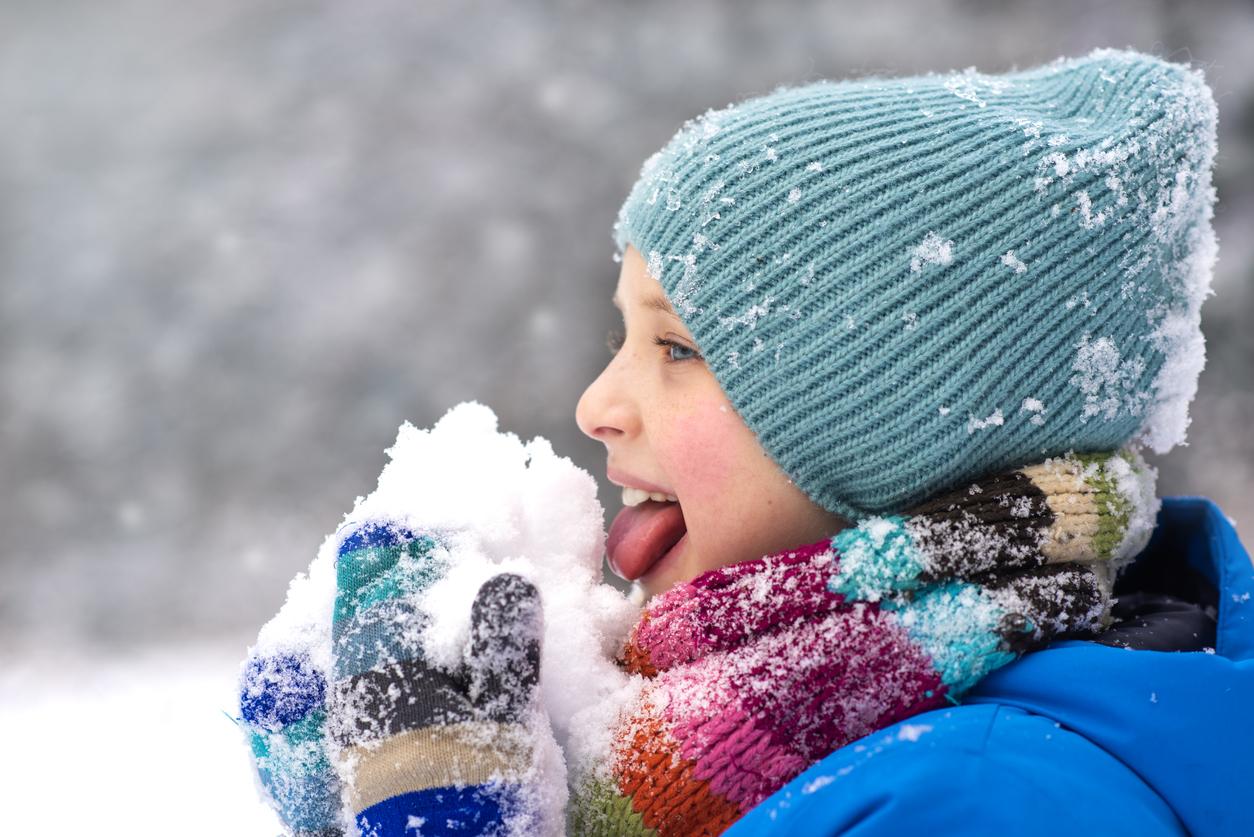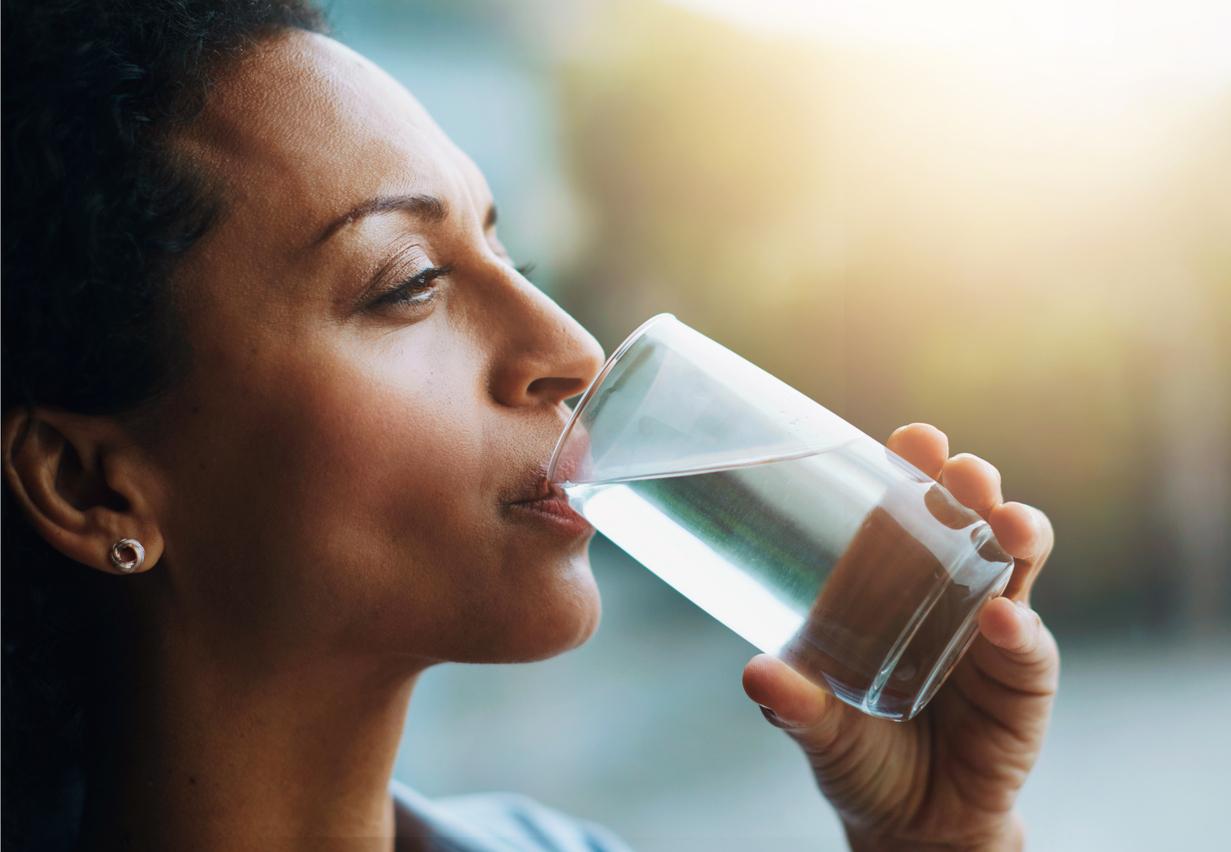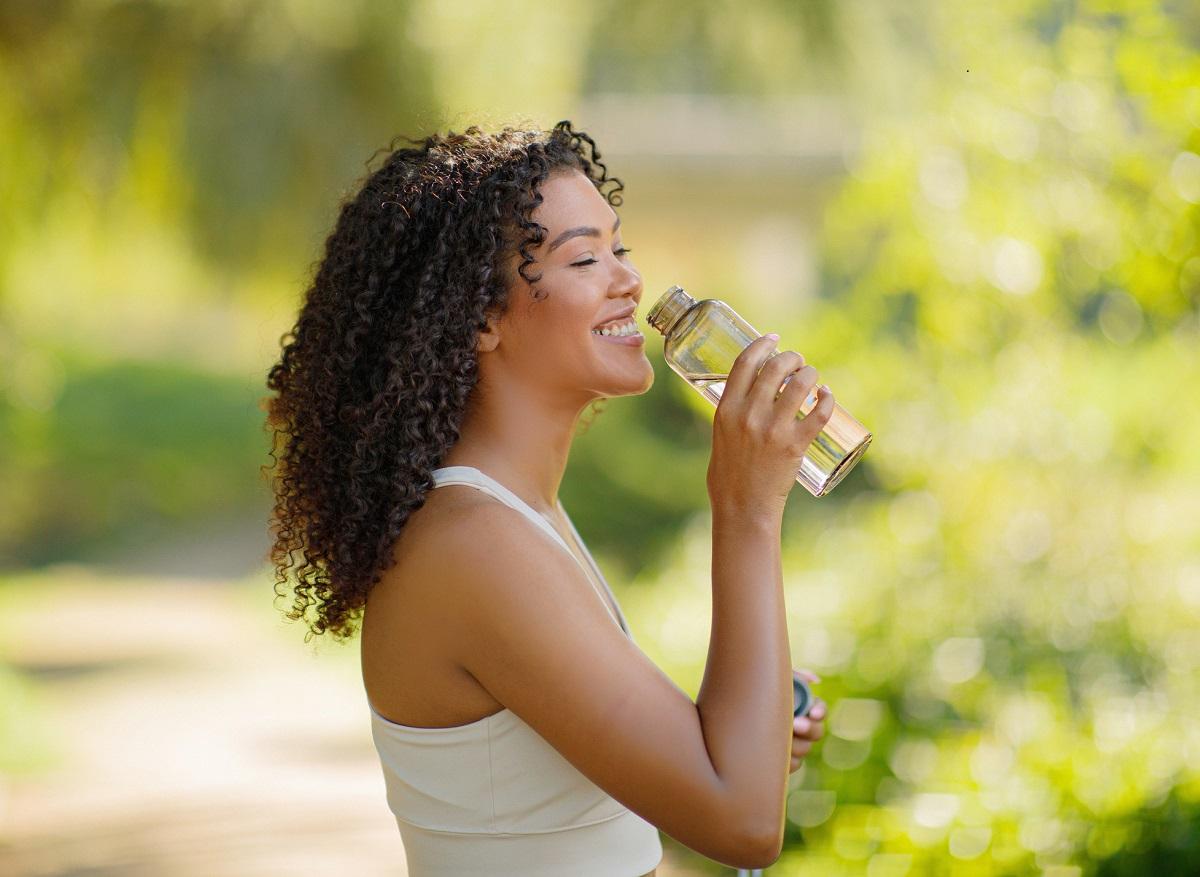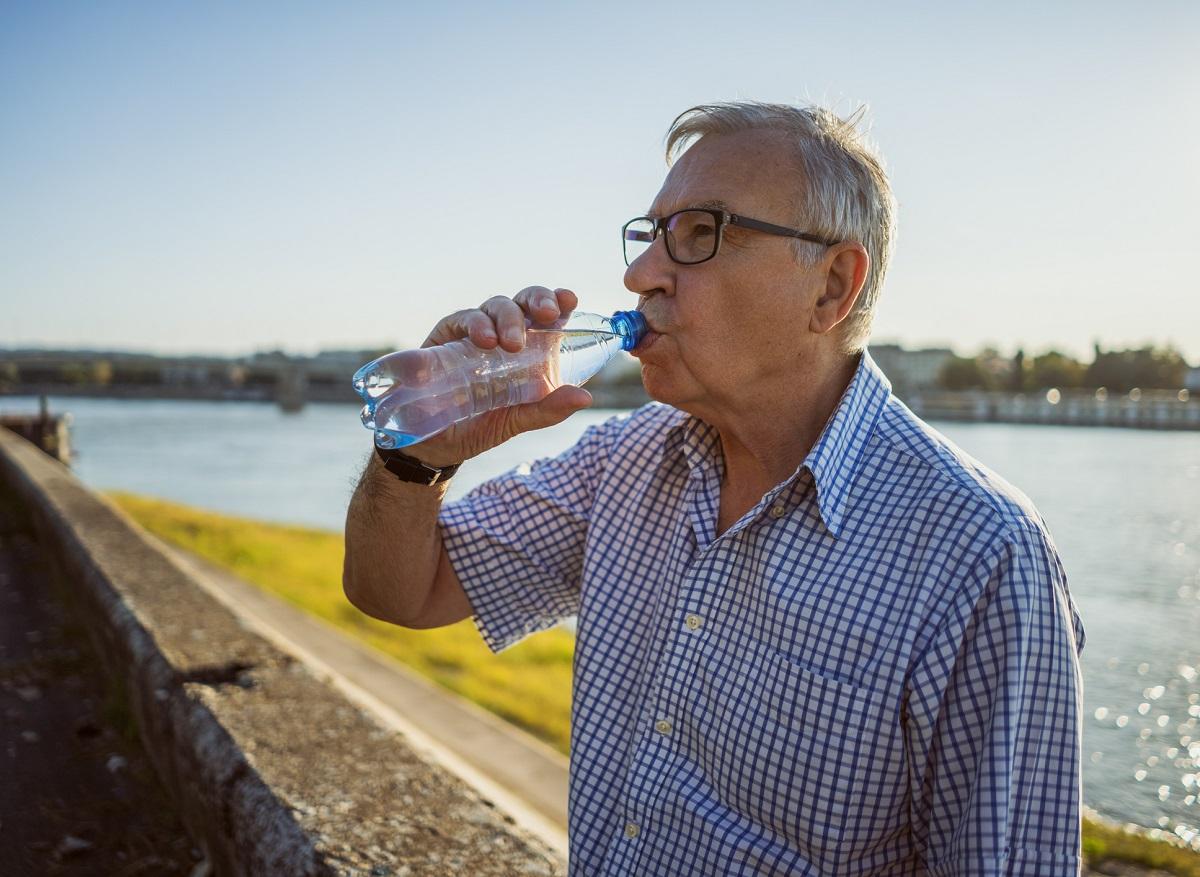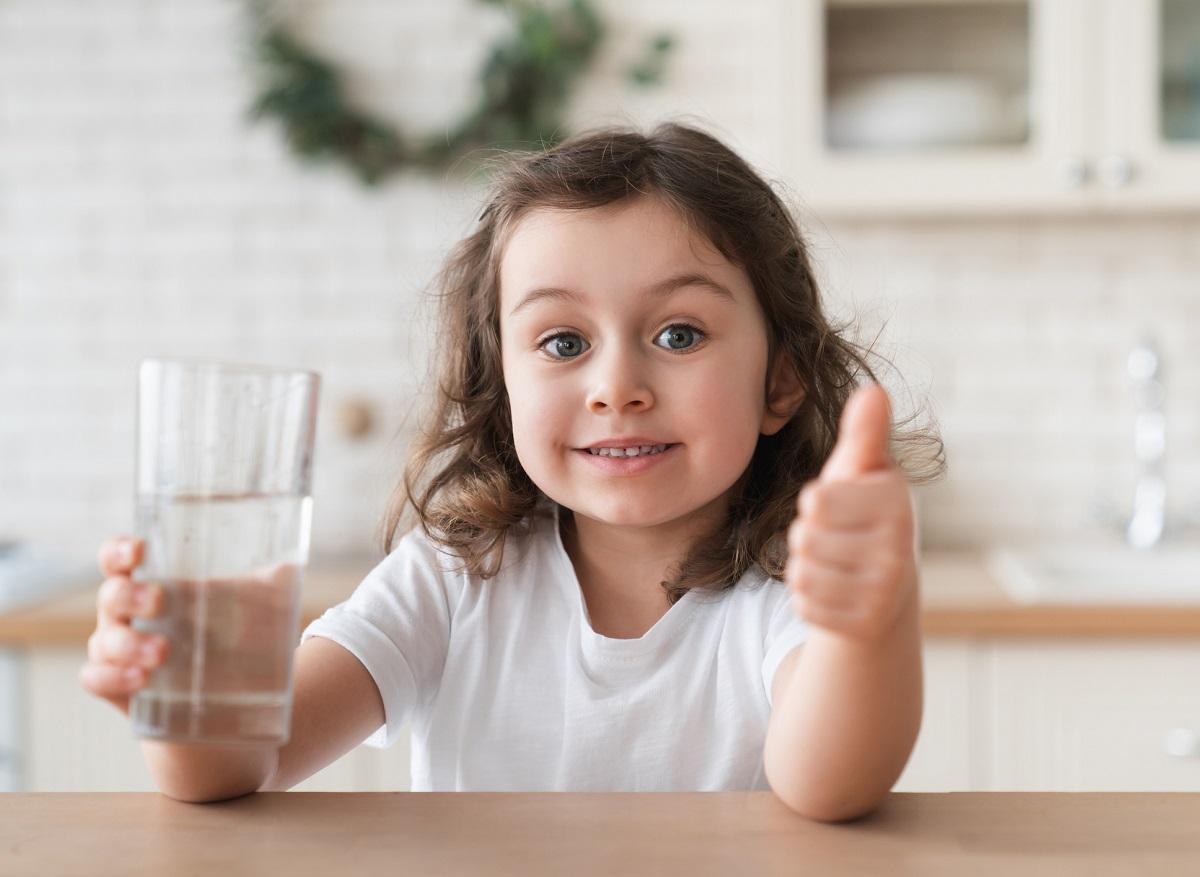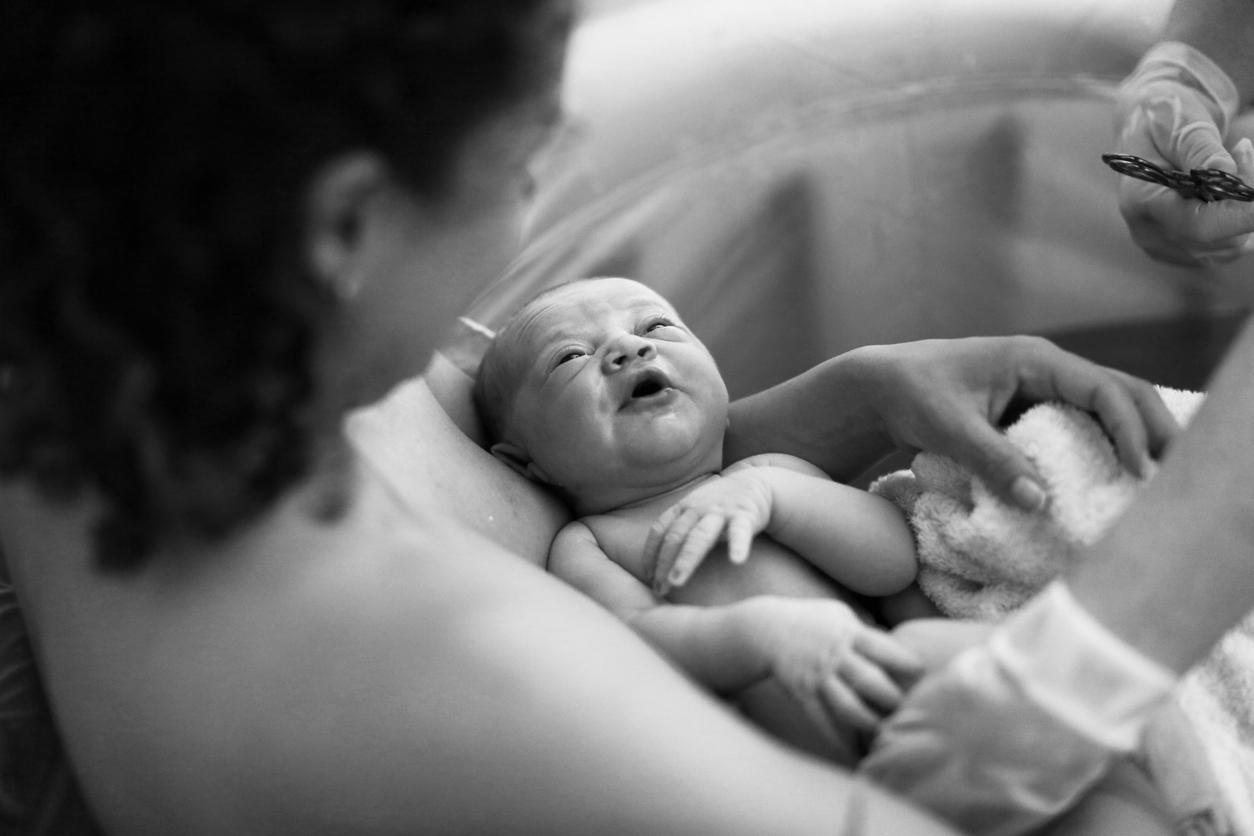Drink 2 liters a day during heat wave
Summer. The mercury is creeping up and sunbathers are taking it. Until the temperatures rise above thirty degrees. Such heat is too much of a good thing, especially for seniors. They are at risk of dehydration. Drinking enough is literally vital. But how much is enough, and does coffee count?
An older body has a hard time with extreme heat. That’s no secret. Maintaining body temperature is a complicated process and becomes increasingly difficult as you get older. Important organs such as kidneys, heart and lungs work less and less well. As a senior you notice this because you are thirsty less often and perspire more difficult.
Thirst and perspiration are important indicators that your body is losing fluids that need to be replenished. So if these ‘alarm bells’ no longer ring (properly), you must take measures. The National Institute for Public Health and the Environment (RIVM) advises seniors to drink at least two liters of fluid daily. It doesn’t necessarily have to be just water.
Coffee and tea are also allowed
According to the RIVM, it is even better to alternate different drinks. Think of (fresh) fruit juices, tomato juice, milk, sports drinks and of course water. Warm drinks such as coffee and tea are also allowed, but preferably in moderation. A cup of stock is recommended, as the minerals in it help maintain fluid balance. It is better not to drink alcoholic beverages such as beer and wine, because these actually drain moisture. They increase the risk of dehydration.
Many seniors find it difficult to drink two liters of fluid. It gives them a ‘water belly’ or they can’t estimate how much two liters is. There are good solutions for both problems. You can prevent a ‘water belly’ by spreading the two liters well over the day. Start with the first glass early in the morning and finish with the last glass late at night. Monitor the color of your urine throughout the day. If it becomes darker, you are drinking too little. Even if you have to go to the toilet less often, you should drink more.
How much is two liters?
To find out how much two liters is, you can go to the supermarket and buy a two liter soda bottle (note: most bottles contain one and a half liters). Indeed, this is a considerable amount. You can use the bottle (or a measuring cup) to see how many glasses you can fill with it. An average glass holds 0.2 liters, a tea glass often slightly less. This means that you should drink ten to fifteen glasses (!) a day. Keep an eye on the clock or use a kitchen timer and drink a glass every hour.
Drinking enough water prevents overheating and dehydration. You keep the perspiration going which is important to cool down. You feel fitter if you drink enough. You better handle the heat! In addition, you reduce the risk of kidney damage and heart failure. If someone does drink too little, make sure you recognize the symptoms of dehydration. Those who become dehydrated will first have a dry mouth, nose and throat. It becomes more difficult to sweat and urinate. After that, a person often becomes pale and the eyes hollow. Flaky skin also indicates a lack of moisture.
Heat and medicines
In some cases, two liters of fluid per day is not enough. For example, some drugs increase the risk of dehydration. This concerns, for example, the diuretics and the medicine laxatives. If you use these or other medicines that affect the fluid balance in your body, it is wise to contact your doctor as soon as it gets warmer. This can give extra tips to prevent dehydration.
Heat and nutrition
Although the appetite often decreases in extreme heat, it is important to keep what you eat well refrigerated. One of the worst things that can happen to a senior during a heat wave is getting food poisoning. That leads to diarrhea. The body can then practically no longer retain moisture, so that the risk of dehydration is very great. Therefore, check products extra carefully for shelf life, and throw away everything that has expired. If you do get diarrhoea, do not wait too long before contacting your doctor.
In nursing homes
If you no longer live at home but in a care home, the staff is trained to pay extra attention to heat. There are special scenarios to prevent heat suffering. Make sure that there is always a drink nearby, so that you are not thirsty for a moment.
Don’t underestimate the dangers of low drinking and dehydration! Warm summer weather kills thousands of people every year, often fatal.











